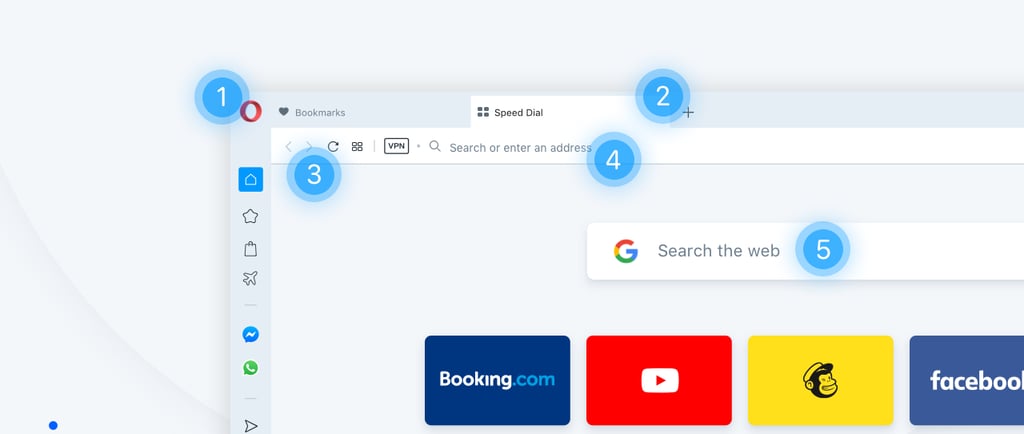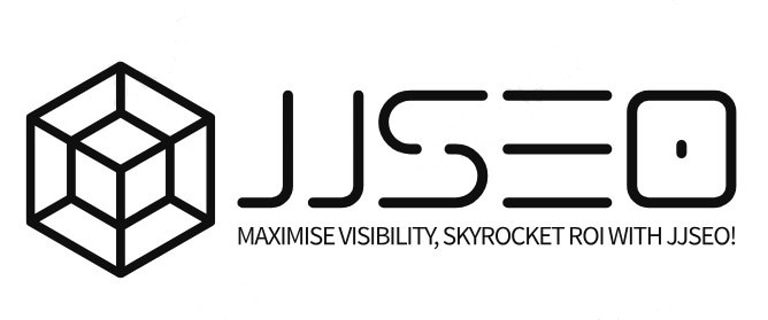How Opera Browser Enhances Efficiency in My Freelance SEO Consultancy
As a freelance SEO consultant based in the UK, my work demands precision, organisation, and tools that streamline complex tasks without adding unnecessary overhead. Over the years, I’ve tested numerous browsers—Chrome, Firefox, Edge—but one stands out for its unique capabilities tailored to SEO: Opera.
SEO TOOLS AND TECHNOLOGY
Jorge Jaroslavsky
4/15/20256 min read


My Professional Context
For over more than 10 years, I’ve run a freelance SEO consultancy, serving clients ranging from local SMEs to international e-commerce websites. My responsibilities span technical audits, keyword research, competitor analysis, content optimisation, and performance reporting—often across multiple projects simultaneously. Efficiency is critical, as is the ability to deliver measurable results under tight deadlines. While SEO tools like Ahrefs and Google Analytics form the backbone of my work, the browser I use plays a pivotal role in tying these elements together. Opera’s feature set aligns seamlessly with the demands of SEO, offering both practical utility and innovative solutions.
Far from being a niche choice, Opera has become integral to my workflow, offering features that directly address the needs of SEO professionals. In this post, I’ll outline why Opera is a strategic asset for my consultancy, with a particular focus on its Workspaces and Aria AI capabilities, which have transformed how I manage projects and conduct research. Below, I detail eight key advantages, grounded in practical applications, to demonstrate why Opera merits consideration for any SEO professional.
1. Built-in VPN for Geo-Targeted Analysis
Opera’s integrated VPN is a standout feature for SEO professionals conducting geo-specific research. By masking my IP address and simulating locations across regions like Europe, the Americas, or Asia, it enables me to analyse search engine results pages (SERPs) as they appear to users in different markets. This is invaluable for clients targeting international or regional audiences. For instance, when optimising a UK-based retailer’s site for European markets, I used the VPN to verify rankings in France and Germany, ensuring hreflang tags and local keywords were correctly implemented.
The VPN also enhances privacy during competitor research, preventing my activity from being tracked. Unlike standalone VPNs, Opera’s is free, unlimited, and requires no external subscriptions. However, it offers broad regional options rather than city-level precision, and connection speeds may dip slightly when active. For most SEO tasks, though, it’s a robust tool for global analysis.
2. Ad Blocker for Streamlined Site Audits
Opera’s native ad blocker eliminates intrusive ads and trackers, providing a clear view of websites during audits. This is particularly useful when assessing on-page elements like content structure, navigation, or user experience, which can be obscured by pop-ups or banners. For example, when auditing a client’s blog, the ad blocker allowed me to focus on meta descriptions and internal linking without distractions, while also improving page load times for faster analysis.
By blocking trackers, it also safeguards my research from being logged, which is critical when examining competitors’ sites. The ad blocker can be toggled off for tasks like PPC analysis, ensuring flexibility. This feature directly supports SEO by enabling cleaner, more efficient site evaluations.
3. Workspaces: A Cornerstone of Project Organisation
One of Opera’s most transformative features for my consultancy is Workspaces, which allows me to group tabs into distinct, customisable environments. As an SEO professional managing multiple clients and tasks, this capability has revolutionised how I organise my workflow. Each workspace can be named and colour-coded, creating a clear separation between projects and reducing cognitive overload.
For instance, I maintain a workspace for each client, with tabs dedicated to their Google Search Console, CMS, and keyword tracking tools. A separate “Research” workspace houses platforms like SEMrush and Google Trends, while another, “Technical SEO,” includes tools for schema validation and crawl analysis. This structure ensures I can switch contexts—say, from auditing a local business’s site to planning an international campaign—without sifting through dozens of tabs. Recently, while managing three concurrent projects, Workspaces prevented overlap, ensuring I never mixed up client data or lost focus.
Beyond client work, Workspaces streamline recurring tasks. For example, my “Reporting” workspace consolidates analytics dashboards and spreadsheet templates, making monthly performance reviews faster. Unlike bookmark folders or multiple browser windows, Workspaces keep everything accessible within a single interface, saving time and minimising errors. The only limitation is that workspaces don’t sync across devices automatically, requiring manual setup if I switch laptops. However, the productivity gains far outweigh this minor inconvenience, making Workspaces a cornerstone of my SEO process.
4. Turbo Mode for Reliable Performance
Opera’s Turbo Mode compresses web pages to accelerate loading times, which is essential when working on unreliable networks—a common scenario for freelancers meeting clients offsite or working remotely. This feature ensures I can access data-heavy tools like Google Analytics or Sitebulb without delays. For example, during a client presentation at a venue with poor Wi-Fi, Turbo Mode enabled me to load Search Console reports swiftly, keeping the discussion on track.
Turbo Mode also aids mobile SEO testing by simulating slower connections, helping me evaluate site performance for users on 3G or 4G. While it may occasionally disrupt dynamic content, such as JavaScript-based tools, disabling it for those tasks resolves the issue. For most SEO activities, Turbo Mode enhances reliability and speed.
5. Aria AI: A Research and Optimisation Powerhouse
Opera’s built-in AI assistant, Aria, is a game-changer for SEO research and problem-solving. Accessible via the sidebar, Aria delivers real-time insights, summaries, and suggestions, eliminating the need to juggle multiple tabs or external tools. Its capabilities are particularly potent for keyword research, content optimisation, and technical troubleshooting.
In keyword research, Aria excels at generating long-tail ideas and related terms. For a recent project targeting “sustainable fashion,” I prompted Aria to suggest variations, receiving options like “eco-friendly clothing brands UK” and “how to shop sustainably online.” This accelerated my planning, allowing me to build a robust keyword matrix faster than with manual tools alone. Aria also identifies user intent by suggesting questions—like “What are sustainable fashion trends for 2025?”—which I used to shape blog content for a client’s site.
For competitor analysis, Aria’s summarisation skills are invaluable. By inputting a rival’s URL, I can request a breakdown of their content focus or keyword strategy, uncovering gaps my clients can exploit. For instance, Aria highlighted that a competitor’s blog lacked coverage of “vegan leather alternatives,” prompting me to recommend a targeted post that boosted my client’s rankings.
On the technical side, Aria clarifies complex issues in accessible terms. When a client’s site faced crawl errors, I asked Aria to explain Google’s crawl budget, receiving a concise guide that helped me prioritise fixes. While Aria’s outputs require validation with tools like Ahrefs for data accuracy, its ability to kickstart research or demystify concepts saves hours. For SEO professionals, Aria is a versatile ally, enhancing both creativity and precision.
6. Custom Search Engine Shortcuts
Opera’s custom search engine functionality allows me to assign shortcuts for platforms like Google, Bing, or DuckDuckGo, streamlining SERP comparisons. By typing “g keyword” or “b keyword,” I can instantly view results across engines, which is critical for clients targeting diverse audiences. For a recent campaign, this helped me optimise a site for Bing’s UK market, identifying ranking opportunities missed on Google. The feature eliminates manual switching, making competitive analysis more efficient.
7. Lightweight Design for Multitasking
Opera’s low resource consumption ensures smooth performance, even with multiple SEO tools running simultaneously. On an average day, I might have Google Analytics, Screaming Frog, and a client’s CMS open, alongside research tabs. Opera handles this load without lagging, unlike heavier browsers that strain my laptop. This reliability is crucial during intensive tasks like site crawls or real-time reporting, and its battery efficiency supports long sessions away from a charger.
8. Sidebar for Workflow Integration
The sidebar offers quick access to communication tools (e.g., WhatsApp, Telegram) and notes, keeping me connected with clients without disrupting my focus. I also pin web-based tools like Google Trends for instant access. During a recent audit, I used the sidebar to log findings in notes while messaging a client about progress, all within Opera. This integration minimises context-switching, boosting productivity.
Considerations and Mitigations
Opera isn’t without limitations. Its extension library is smaller than Chrome’s, potentially missing niche SEO plugins. I mitigate this by installing Chrome extensions via a compatibility add-on, covering tools like SEOquake. Privacy concerns, due to Opera’s ownership, are addressed by using the VPN and ad blocker for sensitive tasks. Rarely, some SEO platforms perform better on Chrome, so I maintain it as a secondary option. For most workflows, however, Opera’s advantages dominate.
A Case Study in Action
Consider a recent project for a UK-based retailer. I used Workspaces to separate keyword research (Google Keyword Planner, Aria-generated ideas), technical audits (Search Console, Screaming Frog), and competitor analysis (VPN-enabled SERP checks). Aria suggested long-tail keywords like “affordable UK home decor,” shaping the content strategy, while Workspaces kept client tabs isolated from research tools. The sidebar’s notes captured audit findings, and Turbo Mode ensured access during a client meeting with poor Wi-Fi. The result? A 5-position ranking increase for key terms, delivered efficiently.
Why Opera Matters for SEO Professionals
Opera’s blend of Workspaces, Aria AI, VPN, ad blocker, and lightweight design makes it a strategic choice for SEO consultants. Workspaces bring order to complex projects, while Aria accelerates research and problem-solving, directly impacting campaign success. These features, combined with practical tools like Turbo Mode and search shortcuts, enable me to deliver results faster and with greater precision. For UK-based professionals seeking a competitive edge, I recommend trialling Opera. Import your bookmarks, configure Workspaces for your projects, and leverage Aria for keyword insights. Its impact on your efficiency may surprise you.
Related blog posts:
Expertise
Driving organic traffic with tailored SEO solutions.
Growth
Results
Mail to: jj@jjseo.co.uk
© 2025 JJSEO. All rights reserved. | Expert SEO Consultant in Leeds
